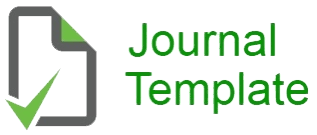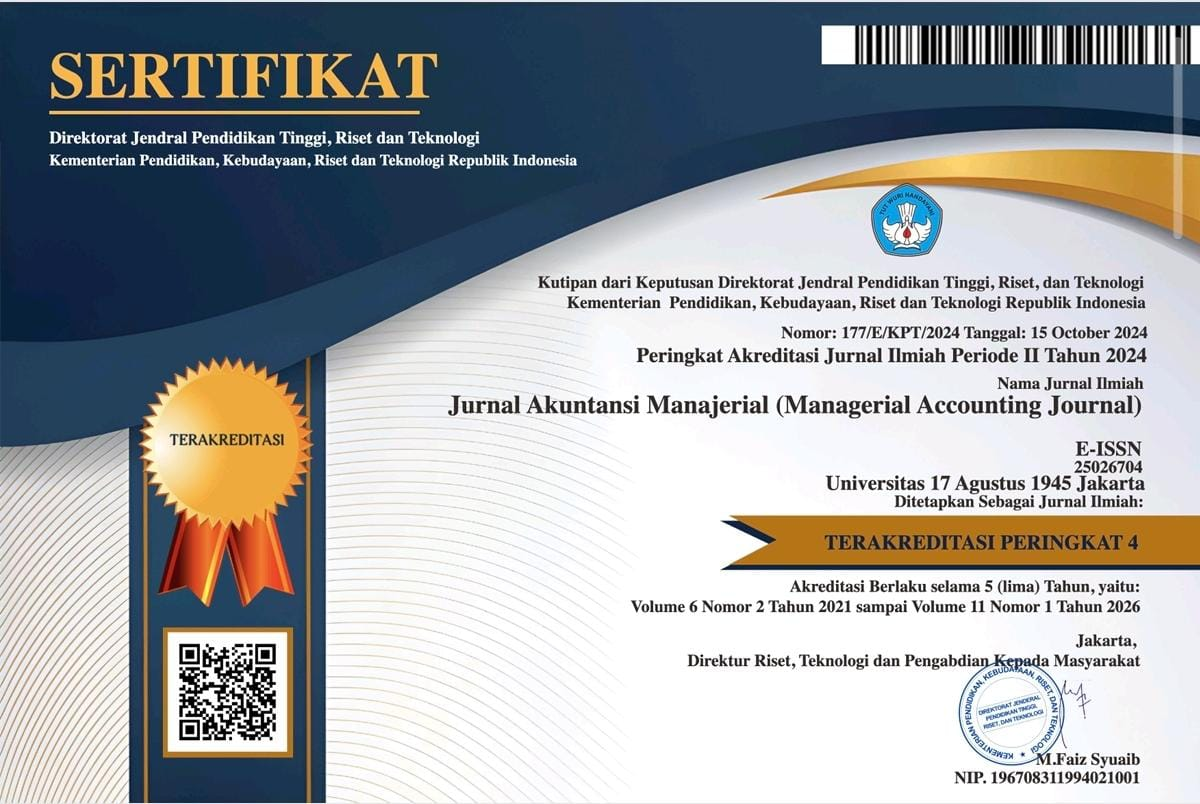The Influence of Creative Thinking and Financial Literacy on Tax Compliance Intention with Nationalism as a Moderator
Abstract
Keywords
Full Text:
PDFReferences
Ajzen, I. (2021). The theory of planned behavior: A review of its applications to health-related behaviors. Journal of Behavioral Research, 12(2), 45-67.
Alvarez, M., & Morris, R. (2021). Financial literacy and tax compliance in developing countries. International Journal of Public Economics, 16(3), 112-128.
Amabile, T. M. (2021). Creativity in context: Update to the social psychology of creativity. Harvard University Press.
Anaman, P. D., Ahmed, I. A., & Amanamah, R. (2023). Financial Literacy, Perceived Justice in the Tax System and Tax Compliance: A Sub-Saharan African Perspective. SEISENSE Business Review, 4 (1) : 217-232.
Anderson, B. (2021). Imagined communities: Reflections on the origin and spread of nationalism. Verso Books.
Apriliani, E., Sukma, B. F., Ndraha, K. P., Putri, B. A., & Zai, E. Pengaruh Literasi Keuangan Terhadap Kepatuhan Pajak Pebisnis Online. JERUMI: Journal of Education Religion Humanities and Multidiciplinary, 1 (2) : 747-755
Brown, K., & Lee, S. (2021). Technology and tax compliance: The role of e-filing in enhancing taxpayer participation. Journal of Technology and Society, 8(4), 50-69.
Bryman, A. (2021). Social research methods (6th ed.). Oxford University Press.
Clark, R., & Evans, M. (2021). Nationalism and its influence on tax compliance in emerging economies. Journal of Public Policy and Administration, 9(2), 30-45.
Creswell, J. W. (2021). Research design: Qualitative, quantitative, and mixed methods approaches (5th ed.). SAGE Publications.
Fishbein, M., & Ajzen, I. (2021). Predicting and changing behavior: The reasoned action approach. Psychology Press.
Ghozali, I. (2021). Aplikasi analisis multivariate dengan program IBM SPSS 25 (9th ed.). Badan Penerbit Universitas Diponegoro.
Guilford, J. P. (2021). Creativity: Past, present and future. The Journal of Creative Behavior, 55(1), 1-16.
Hair, J. F., Anderson, R. E., Tatham, R. L., & Black, W. C. (2021). Multivariate data analysis (8th ed.). Pearson Education.
Hamid, N. A., Ibrahim, N. A., Ariffin, N., Taharin, R., & Jelani, F. A. (2019). Factors Affecting Tax Compliance among Malaysian SMEs in E-Commerce Business. International Journal of Asian Social Science, 9(1), 74–85.
Heriansyah, K., Sinaga, L., & Mukri, C. (2024). Determinan Kepatuhan Wajib Pajak Orang Pribadi dalam Pelaporan SPT Tahunan pada Wajib Pajak Orang Pribadi Usahawan. Indo-Fintech Intellectuals: Journal of Economics and Business, 4 (2), 647-664.
Huston, S. (2021). Measuring financial literacy. Journal of Consumer Affairs, 44(2), 296-316.
DOI: https://doi.org/10.52447/jam.v10i1.8092
Refbacks
- There are currently no refbacks.
View My Stats






